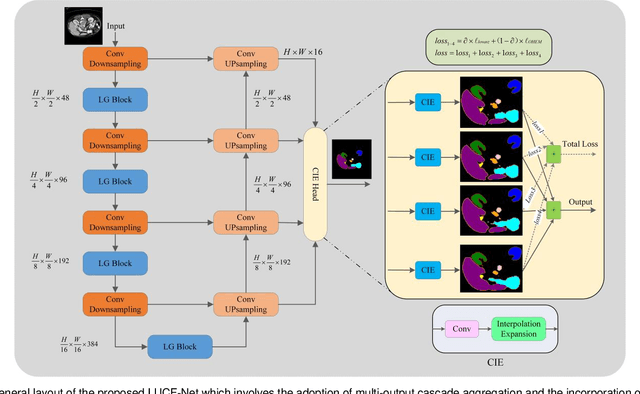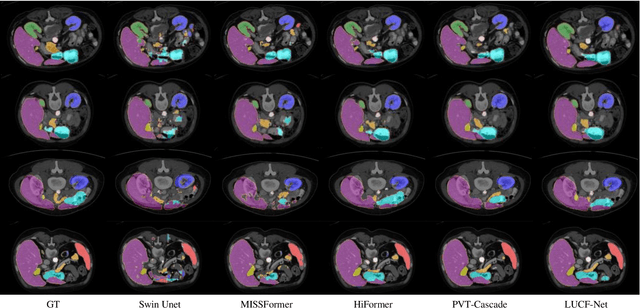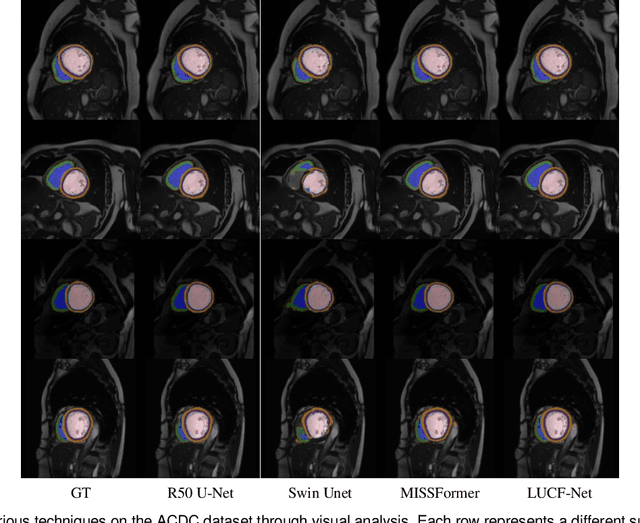LUCF-Net: Lightweight U-shaped Cascade Fusion Network for Medical Image Segmentation
Paper and Code
Apr 11, 2024



In this study, the performance of existing U-shaped neural network architectures was enhanced for medical image segmentation by adding Transformer. Although Transformer architectures are powerful at extracting global information, its ability to capture local information is limited due to its high complexity. To address this challenge, we proposed a new lightweight U-shaped cascade fusion network (LUCF-Net) for medical image segmentation. It utilized an asymmetrical structural design and incorporated both local and global modules to enhance its capacity for local and global modeling. Additionally, a multi-layer cascade fusion decoding network was designed to further bolster the network's information fusion capabilities. Validation results achieved on multi-organ datasets in CT format, cardiac segmentation datasets in MRI format, and dermatology datasets in image format demonstrated that the proposed model outperformed other state-of-the-art methods in handling local-global information, achieving an improvement of 1.54% in Dice coefficient and 2.6 mm in Hausdorff distance on multi-organ segmentation. Furthermore, as a network that combines Convolutional Neural Network and Transformer architectures, it achieves competitive segmentation performance with only 6.93 million parameters and 6.6 gigabytes of floating point operations, without the need of pre-training. In summary, the proposed method demonstrated enhanced performance while retaining a simpler model design compared to other Transformer-based segmentation networks.
 Add to Chrome
Add to Chrome Add to Firefox
Add to Firefox Add to Edge
Add to Edge